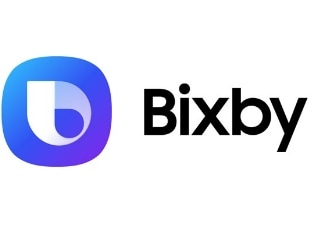- Home
- Games
- Games News
- Fortnite Maker Epic Games Hit With $520 Million Penalty Over Alleged Violation of Children's Privacy
Fortnite Maker Epic Games Hit With $520 Million Penalty Over Alleged Violation of Children's Privacy
Epic Games said that it had eliminated pay-to-win and pay-to-progress mechanics, along with random item loot boxes in 2019.

Photo Credit: Bloomberg
Epic employees had expressed concern about the company's default settings in place for children
Fortnite creator Epic Games will pay $520 million (roughly Rs. 4,305 crore) to settle allegations that it illegally collected children's personal information and tricked people into making purchases, the Federal Trade Commission and the company said on Monday.
It will pay a record penalty of $275 million (roughly Rs. 2,300 crore) for violating a children's privacy law and adopt strong default privacy settings for young people. Epic Games will also pay $245 million (roughly Rs. 2,000 crore) to refund consumers duped by so-called "dark patterns" into making purchases they did not intend to make, the FTC said.
"Epic used privacy-invasive default settings and deceptive interfaces that tricked Fortnite users, including teenagers and children," said FTC Chair Lina Khan in a statement.
The announcement comes as the agency has taken a more muscular role in policing the gaming industry, announcing last week a complaint against Microsoft over its $69 billion (roughly Rs. 6 lakh crore) bid to acquire Activision.
Epic said in a statement on Monday that it had eliminated pay-to-win and pay-to-progress mechanics when two players compete against each other and that it had eliminated random item loot boxes in 2019. It also said that it was putting into place an explicit yes/no choice to save payment information.
It said that players could seek refunds via credit cards. "If a cardholder sees an unauthorized transaction on their statement, they may report it to their bank to have it reversed," the company said in its statement.
To protect children, Epic said it had created features like easier-to-access parental controls and a PIN requirement to allow parents to authorize purchases and a daily spending limit for kids under 13.
The FTC said that Epic employees had expressed concern about the company's default settings in place for children, saying that people should be required to opt-in for voice chat. The FTC said that voice and text chat must be turned off by default.
Children's privacy advocates were pleased with the settlement, with Jeff Chester of the Center for Digital Democracy saying that "kids should also have their data privacy rights better respected through this enforcement of the federal kids data privacy law (COPPA)."
© Thomson Reuters 2022
Get your daily dose of tech news, reviews, and insights, in under 80 characters on Gadgets 360 Turbo. Connect with fellow tech lovers on our Forum. Follow us on X, Facebook, WhatsApp, Threads and Google News for instant updates. Catch all the action on our YouTube channel.
Related Stories
- Samsung Galaxy Unpacked 2026
- iPhone 17 Pro Max
- ChatGPT
- iOS 26
- Laptop Under 50000
- Smartwatch Under 10000
- Apple Vision Pro
- Oneplus 12
- OnePlus Nord CE 3 Lite 5G
- iPhone 13
- Xiaomi 14 Pro
- Oppo Find N3
- Tecno Spark Go (2023)
- Realme V30
- Best Phones Under 25000
- Samsung Galaxy S24 Series
- Cryptocurrency
- iQoo 12
- Samsung Galaxy S24 Ultra
- Giottus
- Samsung Galaxy Z Flip 5
- Apple 'Scary Fast'
- Housefull 5
- GoPro Hero 12 Black Review
- Invincible Season 2
- JioGlass
- HD Ready TV
- Latest Mobile Phones
- Compare Phones
- Vivo V70
- Vivo V70 Elite
- Google Pixel 10a
- Tecno Camon 50
- Tecno Camon 50 Pro
- Lava Bold N2
- Vivo V60 Lite 4G
- Tecno Pova Curve 2 5G
- Asus Vivobook 16 (M1605NAQ)
- Asus Vivobook 15 (2026)
- Infinix Xpad 30E
- Brave Ark 2-in-1
- boAt Chrome Iris
- HMD Watch P1
- Xiaomi QLED TV X Pro 75
- Haier H5E Series
- Asus ROG Ally
- Nintendo Switch Lite
- Haier 1.6 Ton 5 Star Inverter Split AC (HSU19G-MZAID5BN-INV)
- Haier 1.6 Ton 5 Star Inverter Split AC (HSU19G-MZAIM5BN-INV)


















